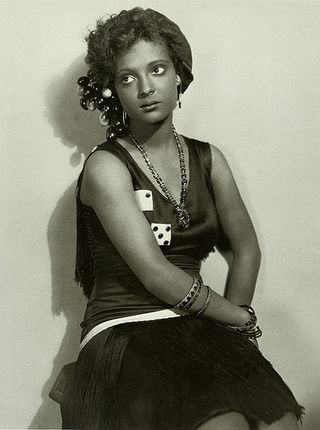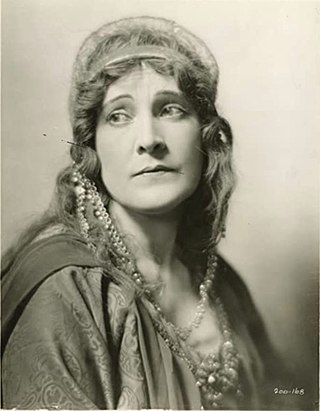Spirit possession is an unusual or an altered state of consciousness and associated behaviors which are purportedly caused by the control of a human body and its functions by spirits, ghosts, demons, angels, or gods. The concept of spirit possession exists in many cultures and religions, including Buddhism, Christianity, Haitian Vodou, Dominican 21 Divisions, Hinduism, Islam, Wicca, and Southeast Asian, African, and Native American traditions. Depending on the cultural context in which it is found, possession may be considered voluntary or involuntary and may be considered to have beneficial or detrimental effects on the host. Spirit possession is often regarded as a reason in support of spirits, deities or demons. In a 1969 study funded by the National Institute of Mental Health, spirit possession beliefs were found to exist in 74% of a sample of 488 societies in all parts of the world, with the highest numbers of believing societies in Pacific cultures and the lowest incidence among Native Americans of both North and South America. As Pentecostal and Charismatic Christian churches move into both African and Oceanic areas, a merger of belief can take place, with demons becoming representative of the "old" indigenous religions, which the Christian ministers attempt to exorcise.

Nina Simone was an American singer, songwriter, pianist, composer, arranger and civil rights activist. Her music spanned styles including classical, folk, gospel, blues, jazz, R&B, and pop. In 2023 Rolling Stone ranked Simone at No. 21 on their list of the 200 Greatest Singers of All Time.

Ida M. Cox was an American singer and vaudeville performer, best known for her blues performances and recordings. She was billed as "The Uncrowned Queen of the Blues".

Crossing Delancey is a 1988 American romantic comedy film adapted by Susan Sandler from her play of the same name, and directed by Joan Micklin Silver. It stars Amy Irving and Peter Riegert. The film also features performances from Reizl Bozyk, David Hyde-Pierce, Sylvia Miles and Rosemary Harris. Amy Irving was nominated for a Golden Globe for the film, for Best Actress in a Motion Picture - Comedy or Musical.

Errol Walton Barrow was a Barbadian statesman and the first prime minister of Barbados. Born into a family of political and civic activists in the parish of Saint Lucy, he became a WWII aviator, combat veteran, lawyer, politician, gourmet cook and author. He is often referred to as the "Father of Independence" in Barbados.
AFI's 100 Years...100 Stars is the American Film Institute's list ranking the top 25 male and 25 female greatest screen legends of American film history and is the second list of the AFI 100 Years... series.
"Cotton-Eyed Joe" is a traditional American country folk song popular at various times throughout the United States and Canada, although today it is most commonly associated with the American South. The song is mostly identified with the 1994 Rednex version, which became popular worldwide. The song is also an instrumental banjo and bluegrass fiddle standard.
Ida is an American indie rock band from New York City. They are known for their three-part harmonies; sparse, minimal, often quiet arrangements; and their three singer-songwriters. Their music shows strong folk, pop, punk, world, R&B, and American roots music influences, but there are also avant garde and experimental aspects to their sound.

Nina Mae McKinney was an American actress who worked internationally during the 1930s and in the postwar period in theatre, film and television, after beginning her career on Broadway and in Hollywood. Dubbed "The Black Garbo" in Europe because of her striking beauty, McKinney was both one of the first African-American film stars in the United States and one of the first African-Americans to appear on British television.

Hallelujah is a 1929 American pre-Code Metro-Goldwyn-Mayer musical directed by King Vidor, and starring Daniel L. Haynes and Nina Mae McKinney.

"Sinner Man" or "Sinnerman" is an African American traditional spiritual song that has been recorded by a number of performers and has been incorporated in many other media and arts. The lyrics describe a sinner attempting to hide from divine justice on Judgment Day. It was recorded in the 1950s by Les Baxter, the Swan Silvertones, the Weavers and others, before Nina Simone recorded an extended version in 1965.
"Young Beichan", also known as "Lord Bateman", "Lord Bakeman", "Lord Baker", "Young Bicham" and "Young Bekie", is a traditional folk ballad categorised as Child ballad 53 and Roud 40. The earliest versions date from the late 18th century, but it is probably older, with clear parallels in ballads and folktales across Europe. The song was popular as a broadside ballad in the nineteenth century, and survived well into the twentieth century in the oral tradition in rural areas of most English speaking parts of the world, particularly in England, Scotland and Appalachia.
Sylvia Wynter, O.J. is a Jamaican novelist,[1] dramatist,[2] critic, philosopher, and essayist.[3] Her work combines insights from the natural sciences, the humanities, art, and anti-colonial struggles in order to unsettle what she refers to as the "overrepresentation of Man". Black studies, economics, history, neuroscience, psychoanalysis, literary analysis, film analysis, and philosophy are some of the fields she draws on in her scholarly work.

Claire McDowell was an American actress of the silent era. She appeared in 350 films between 1908 and 1945.

Bruno Blum is a French singer songwriter, guitar player, music producer and musicologist sometimes nicknamed "Doc Reggae". He is mostly known for his work in the reggae, Caribbean music, rock music and African musics fields, and also works as a cartoon and comic book artist, illustrator, painter, photographer, video director, writer, journalist, music historian, interpreter and speaker.

Douglas Walton was a Canadian-born American actor who worked in American films during the 1930s and 1940s. He appeared in 60 films between 1931 and 1950.

Over the Hill is a 1931 American Pre-Code black-and-white melodrama film directed by Henry King for Fox Film Corporation. Starring Mae Marsh, James Dunn, Sally Eilers, and Olin Howland, the story concerns a young mother who devotedly cares for her children but when they grow up, most of them turn their backs on her and she has no choice but to go live in the poorhouse. The film is a remake of the 1920 silent film Over the Hill to the Poorhouse, which had been a major box-office hit for Fox. The story was based on a pair of poems by Will Carleton. Over the Hill also inspired the South Korean film adaptation Over the Ridge (1968). The production marked Marsh's first sound film and the second pairing of Dunn and Eilers, who had achieved celebrity in Fox's Bad Girl released earlier in the year.

Devil Bat's Daughter is a 1946 American horror film directed by Frank Wisbar. It stars Rosemary La Planche, who was crowned Miss America 1941. It is a sequel to the 1941 film The Devil Bat, with no returning cast members.
Straight to Heaven is an American film released in 1939. It was produced by Million Dollar Productions. It was advertised as having an all colored cast. Arthur A. Leonard directed. Sack Amusement Enterprises was the distributor.
Neva Mary Peoples was a singer and dancer who appeared in several films in the United States. She performed as a singer, dancer, and chorus girl.












